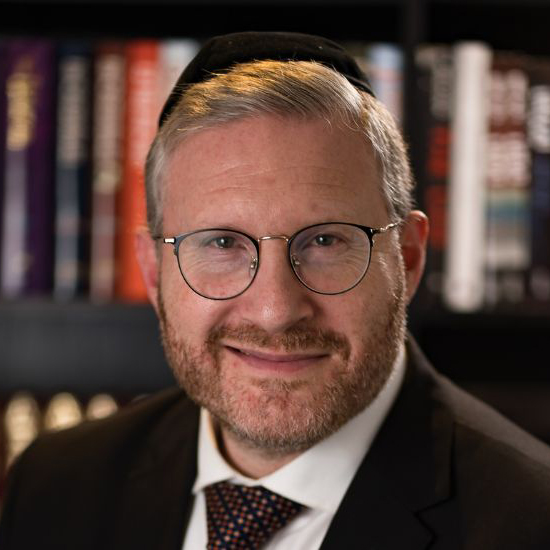0
+
Add your comment
UPCOMING EVENTS

The Caring Interrogator
Rabbi Nachman Seltzer
July 26, 2023
by Rabbi Nachman Seltzer
My car had 90,000 kilometers on it and it was time for the bi-yearly trip to Toyota. I made an appointment with the office and showed up right on time. I filled out the forms and went through the different things they’d be doing – changing this, checking that … and signed my name. Then I went somewhere to eat breakfast. When I returned there were still a few hours until the car would be ready.
There was a man sitting across from me. He had dark skin and coal black eyes. No kipa on his head or anything to make him seem religious in any way.
He gave off a certain impression, like he took life seriously and expected others to do the same.
At some point one of the people from Toyota approached him.
“It’s going to take some more time,” the person said.
The man sighed. “I’ve been here for hours,” he told me, like this was a major inconvenience.
“What do you do?” I asked him.
“I work at a jail.”
“Where?”
“Up north. Well, not really a jail. More like a processing center.”
“Meaning what?”
“Meaning this is the place they bring people before they transfer them to a real jail.”
“It’s for first offenders?”
“No. It’s for anyone. People who’ve been in jail once, twice, or 15 times. They all pass through my office.”
“What’s your job?”
“I’m an interrogator.”
“You meet with them?”
“Not everyone, but many of them.”
“What do you talk about?”
“I try to figure out what they did and why they did it and if they were really at fault and if there’s something I can do to help them. I also try to figure out what kind of people they are so I can decide who to place them with at the center.”
“Are you able to help them?”
“Sometimes.”
“How long does it take you to get to work?”
He thought for a minute.
“About four hours each way. I leave home at five in the morning.”
“That’s some commute.”
He nodded.
“But you like your job?”
“I can help people. It’s not easy and there’s a lot of responsibility, but it’s incredibly rewarding.”
“Give me an example of how you help people.”
“I’ll tell you about a kid I met not long ago.”

“See, the trick to my job is seeing the kids who walk through the door and into my office as if they are my kids. I am the first stop at the jail and I have to determine where they need to be sent. It’s not a simple mission. You need to make the right diagnosis and assessment. Otherwise you could end up treating a good person like a criminal and vice versa.”
“I assume you went for training for this job?”
“Lots of it.
”Anyway, this girl walked into my office last year. She was 14 years old. I looked at her and saw a child. I read her file. It was heartbreak city. Her parents were divorced. Her mother had gotten remarried and lived overseas. Her father lived in Tel Aviv but didn’t have anything to do with her. She lived on the streets.
”When she was brought into my office I took one look at her and I knew that here was a kid who was holding the weight of the world on her shoulders.”
His eyes were filled with emotion at the memory.
I stared at him. He was a tough, burly Israeli. But there was no mistaking the sincerity in his tone of voice.
“What happened?”
“I sat down on the other side of the table and asked her who she was and why she was there.”
“What did she answer you?”
“Nothing, she wouldn’t say a word. She wouldn’t even answer me when I asked her for her name.”
“Is that common?”
“For certain kids, sure. You have to understand something. Here was a kid who had been burned by her parents. But that was only the first step. After she’d been let down by those closest to her and had gotten in trouble, nobody had listened to her when she tried to explain.”
“What do you mean nobody?”
“I mean nobody in any position of authority. Nobody in any government body. Not in the courts or the police. They just read her file and judged her and that was that. By the time she ended up in my office, she had no trust for anyone in the world. The fact that she wasn’t willing to answer me made complete sense once you understood the entire picture.”
“What do you do when a prisoner isn’t willing to talk to you?”
“Every situation is different. With that girl I waited her out.”
“What does that mean?”
“That means that we sat in the room on two sides of the table and she looked at me and I looked back and this went on for 45 minutes. Finally I asked the officer sitting in the back of the room (there’s always another officer in the office together with me) if he could get her a glass of water.”
He brought in a glass of cold water and I set it down in front of her.
“Have a drink,” I said.
She didn’t want to have a drink because that would mean giving in to me and, as I said, she didn’t trust anyone in a position of authority, but I made it clear that we were not going anywhere until she told me who she was and why she had come to be sent to my jail.
In the end she gave in and drank the water. Then we had a conversation.

“I’ve been on the streets for a long time,” she told me.
“It’s been tough?”
“Terrible.”
This was followed by a long conversation. The thing that hit me the hardest was when she said, “One of the worst parts of all was when I was finally arrested by the police and brought to court and I was standing before the judge and I tried to tell him how I’d gotten to this point.”
“What happened?”
“He wouldn’t listen to me. It was like I was talking to the wall. He couldn’t get past the fact that I’d been arrested. I mean, there’s a history here, there’s a reason.”
“Tell me something, Adi.” (She’d told me her name by now.) “What do you want most of all in life?”
“What do I want?” She seemed surprised that someone should be asking her such a question – as if it was a major chidush that anyone should care what she wanted.
She considered my question for an inordinate amount of time.
“I want a family.”
She uttered those words with such simple truth, and I couldn’t help but think of all the children who had been blessed with wonderful parents and great families and yet chose not to appreciate them – when all Adi wanted was the thing they all took for granted.
“I hear you.”
Our conversation came to an end shortly afterwards, and when I sat down that night to write my recommendation to the judge who would decide what to do with Adi, I explained the background, (where she came from, her family history) and what she’d told me about her one wish. I wrote a lot that night, finishing with my personal recommendation.
“It is my opinion that Adi should be sent to a warm foster family. I feel that this move will change her life.”

Adi left the prison a day later and was brought before a judge. Since nobody bothered to update me about what the judge decided, I had no idea if my recommendation had been accepted or not. I just knew I had done all I could for the sad girl from the streets and I hoped that she would find peace in her life. Beneath the surface Adi was a good kid with lots of potential, and I prayed she’d be given the chance to realize it for herself.
………………………………….
“What happened next,” I asked him.
“A few weeks later my commanding officer called me into his office.”
“Sharon,” he said to me, “someone sent you a letter.”
He handed me the letter and I thanked him.
”I went into my office and opened the letter. It was from Adi.”
Dear Officer Sharon,
It’s been a few weeks since we last spoke. When I left the jail and was taken before the judge, he told me that he decided to send me to a foster home up north. It’s a great place. Many of the families living there foster children in addition to their own.
I’ve been going to school again (for the first time in a really long time) and am being given the opportunity to make a fresh start. I know that it’s all due to you and that you told the judge what I needed.
I wanted to thank you for not giving in when I ignored you at first and for listening to me when nobody else would.
Adi
“Do you cry when you’re at the jail?”
He was taken aback by the question.
“No … I don’t cry.”
“But you’re an emotional guy. I can see it in your eyes. You care about people.”
“Yes.”
“You do your best to help people. You’re not always successful but you try your hardest.”
He nodded.
Then we shook hands and I left the dealership and drove home.
It was nice to know that Israel had interrogators like Sharon working in the jail system. Nice for the country and nice for a 14 year old kid named Adi.
*As heard from Officer Sharon
We’d love to hear from you!
If you have any thoughts, takeaways, questions, or comments, please share them with us and we’ll do what we can to have the expert address your message in next month’s edition! As an added bonus, if you’re a paid member, you can share your company name and your position, and the expert will include that when addressing your point!


